Far From Home: East Asia drawing more Indonesian and Filipino maids from the Middle East, but will they be treated better?
For the second part of a series on migrant workers from Southeast Asia, CNA examines which countries are emerging as destinations for domestic helpers from Indonesia and the Philippines as well as the protections afforded to them.

Indonesian and Filipino maids used to flock to the Middle East, but more are now drawn to work in “super-aged” East Asia and that still comes with some pitfalls. (CNA/Rafa Estrada)

This audio is generated by an AI tool.
SRAGEN, Indonesia: When the chance to work as a caregiver in Taiwan came knocking at Madam Wahyuni’s door in early 2024, she thought long and hard about the opportunity.
After four years of being home in her village in the low-lying plains of Central Java, the 40-year-old - who has 10 years of experience working as a domestic helper in Saudi Arabia - said she was initially reluctant to become a live-in worker once more.
“Back home, I can do whatever I like and go wherever I like. You can’t do that anymore if you’re working at someone else’s home,” Mdm Wahyuni, who like many Indonesians goes by one name, told CNA.
More importantly, Mdm Wahyuni said she was still traumatised by her last employer: A 50-year-old Saudi mother of three adult children whom she worked for from 2018 to 2020.
Her former boss, she said, used to make her work 19-hour days with little break or time to herself. She would scold Mdm Wahyuni whenever she thought her domestic helper was working too slowly or for tiny mistakes. She barred her from using the home’s WiFi whenever her employee wanted to have a video chat with her family back home.
But the prospect of earning NT$20,000 (US$631) a month as a caregiver in Taiwan was very lucrative.
It was night and day compared to the 50,000 rupiah (US$3.2) a day she made selling vegetables at a local market back home.
The pay was also higher than the average monthly salary of a maid in Saudi Arabia (US$532), the United Arab Emirates (US$586) and Qatar (US$547).
In May 2024, Mdm Wahyuni made her way to Taipei where she now works as a caregiver to an octogenarian widow and her adult son who has disabilities. Unlike her former employer in Saudi, her new employer has been very kind to her, she said.
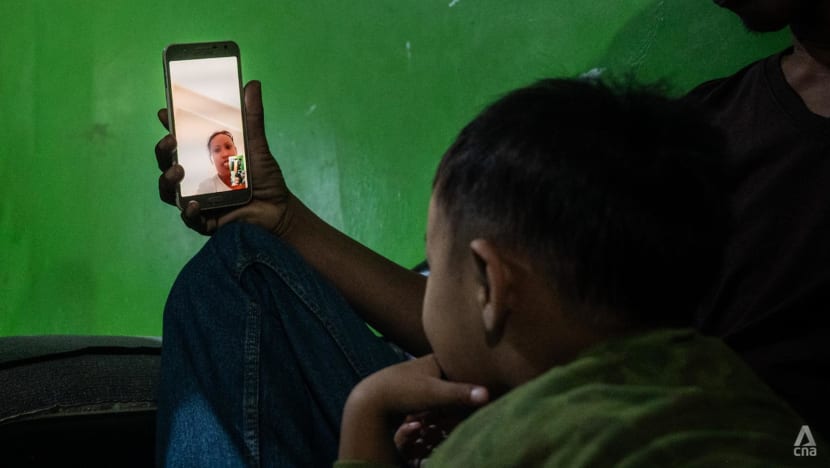
Mdm Wahyuni is just one of a growing number of Indonesians working in Taiwan.
In 2017, Indonesia’s Central Bank reported that there were around 208,000 Indonesian migrant workers on the East Asian island. This figure has ballooned to 447,000 in the first half of 2024.
The rise is part of an ongoing trend of workers from the world’s fourth most populous country slowly shifting away from Middle Eastern countries and gravitating towards East Asia.
According to Bank Indonesia, there were 946,000 Indonesian workers in the Middle East in 2024, compared to 1.08 million seven years ago.
In contrast, the number of Indonesian migrant workers employed in East Asia countries and territories such as Taiwan and South Korea has doubled in the same timeframe, going from 450,000 in 2017 to 965,000 this year.
Read the other articles in this series here:
“I heard bad things about working in the Middle East, anything from violence, lack of freedom to unfriendly employers,” said Ms Siti Nabila, a 25-year-old convenience store clerk from Indonesia’s West Java province who is applying to work as a helper in either Hong Kong or Taiwan.
“Many of my neighbours are working in Hong Kong or Taiwan. They said they love working there. They said they have a lot of time off, the salaries are big and the people are friendly.”
More attractive salaries, better labour rights and protection mechanisms, burgeoning demand as well as changes in policy and diplomatic relationships between Indonesia and the recipient countries are some of the main drivers of this shift, experts and migrant worker rights advocates told CNA.
In August, South Korea launched a pilot programme to welcome Filipino workers to the country. Observers say this could be a sign of a wider trend drawing the region’s domestic helpers towards East Asia.
CHANGING LANDSCAPE IN THE MIDDLE EAST
For decades, the top destination countries for Indonesian domestic workers and caregivers have been Middle Eastern countries such as Saudi Arabia and the United Arab Emirates, particularly as the economies of these Gulf states skyrocketed during the oil price boom of the 1970s.
But the International Labour Organisation noted that some of these countries are notorious for offering little protection towards domestic workers. Migrant helpers in these Arab states were often excluded from the countries’ respective labour laws and tied to their employers through a restrictive sponsorship system known as kafala, the United Nations body reported.
The system involves binding a worker to a specific employer throughout their stay in a particular country, giving the employer considerable power over the helpers’ working and living conditions.
Under the system, the workers are barred from switching jobs and can even face arrest for running away or trying to leave the country without their employers’ consent.
Various human rights groups have argued that the kafala system has paved the way for a culture of impunity among abusive employers since domestic workers were unable to leave their employers and report the abuses that they endured.
“Because of the sponsorship system, many workers have no choice but to stay with their employer despite experiencing physical abuse, harsh living conditions or working for more than 18 hours (a day),” Madam Anis Hidayah, a commissioner at the Indonesian National Commission on Human Rights, told CNA.
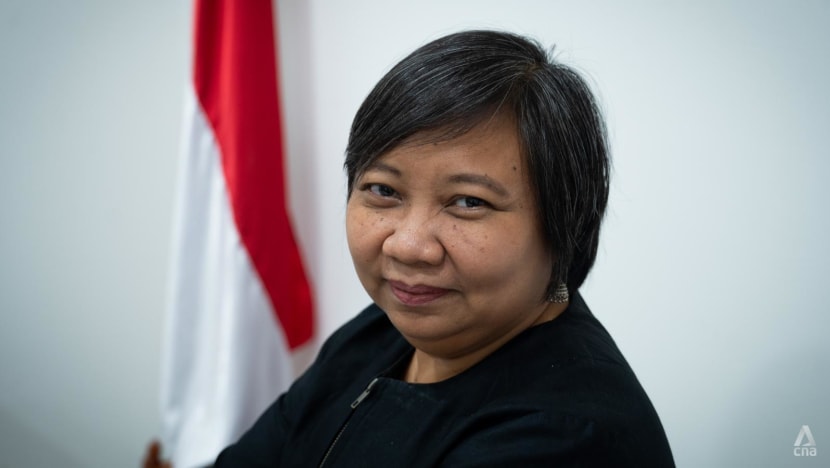
Throughout the decades, there have been numerous reported cases of foreign domestic helpers, including dozens of Indonesians, who were sexually assaulted or physically abused. These cases sometimes led to deaths, disabilities and disfigurement, stoking anger and demonstrations back home.
Madam Surani, who worked in Saudi Arabia from 1995 to 2020, when she returned to Indonesia, said her last Saudi employer was initially nice to her when she started working for her in 2016.
But that started to change when her employer's husband left her for another woman in 2018. A year later, her employer got into a bitter dispute with her siblings over the family’s inheritance.
“(She) became short tempered. She once hurled a plate at me and threatened to kill me for no reason,” the Indonesian helper, who also goes by one name, said.
For two months in 2020, she was locked in her room and was only allowed to go out whenever the employer needed her to do some house chores.
“I was only fed two slices of bread a day,” the 49-year-old told CNA.
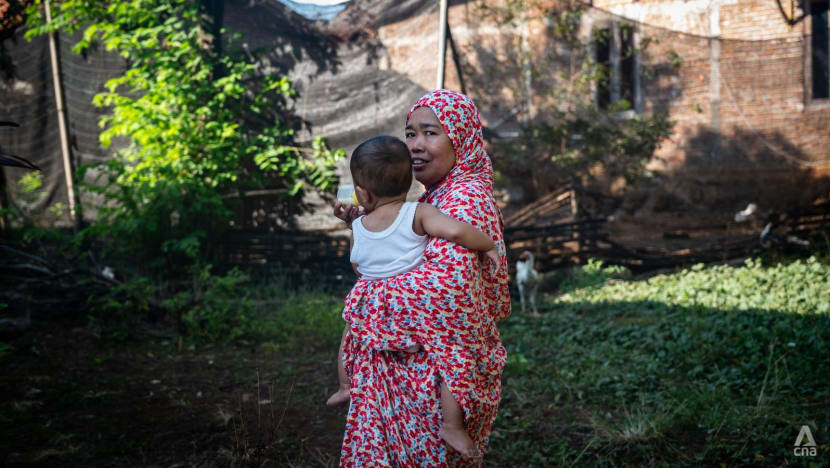
After two months of being locked up in her room, Mdm Surani sought help from the Indonesian consulate in Jeddah which contacted the local authorities. They helped her return home.
“I was taken to the Indonesian consulate’s shelter. There, I met maids who were beaten up. Two of them were completely paralysed. One had bleach thrown at her face which damaged her eyesight,” she said.
“And these are just cases from Jeddah.”
In 2015, the Indonesian public was outraged by the execution of several Indonesian helpers for killing their employers in Saudi Arabia, which Indonesia saw as self-defence because the maids were abused.
Diplomatic rows spurred from domestic workers' mistreatments
Over the years, the mistreatment of domestic workers in the Middle East has created a number of diplomatic rows between countries which send domestic workers abroad, such as Indonesia and the Philippines, and host countries such as Saudi Arabia and Kuwait.
Cases of abuse and injustice affecting domestic workers from Southeast Asia sometimes sparked widespread public outrage at home. These cases typically resulted in Indonesia or the Philippines lodging formal protests.
However, in 2011, Jakarta took things to the next level by recalling its then-ambassador to Saudi Arabia, Gatot Abdullah Mansyur in response to the execution of an Indonesian domestic worker, Ruyati Sapubi who was accused of killing her employer.
Indonesia maintained that it was only notified of the execution after Mdm Ruyati was beheaded, depriving its diplomats of their ability to protect her.
Indonesia-Saudi relations normalised and the Indonesian ambassador was redeployed to Riyadh just a few days later, after the Arab kingdom issued a formal apology and promised to review the cases against 12 Indonesian maids who were also on death row at the time.
However, instances of Indonesian domestic workers executed in Saudi Arabia for killing their employers continued after the normalisation. Jakarta felt that these domestic workers should not have received the death penalty, arguing that the killings were self-defence because the maids were abused.
In 2015, Indonesia imposed a moratorium on the sending of domestic workers to Saudi Arabia along with 18 other countries in the Middle East and North Africa.
Meanwhile, the Philippines and Kuwait engaged in a diplomatic row in 2018 after the death of a Filipina maid, Joanna Demafelis whose lifeless body was discovered inside a freezer in her employer’s apartment, more than a year after she was reported missing. The death sparked a widespread public outcry in the Philippines.
Then-president Rodrigo Duterte responded by ordering a ban on the sending of new domestic workers to Kuwait in February of 2018.
The row turned into a full-blown diplomatic crisis in May after the Filipino embassy in Kuwait aided the escape of three citizens who were abused and held captive by their respective employers.
Manila acknowledged that the rescue operations were not coordinated with Kuwaiti authorities but argued that the maids’ lives were threatened and their cries for help needed to be acted upon immediately.
Kuwait responded by expelling Philippine Ambassador to Kuwait Renato Villa and issuing an arrest warrant against several embassy personnel for violation of its sovereignty.
Both sides decided to normalise relations several weeks later after the Philippines agreed to lift its ban while Kuwait agreed to provide more rights and benefits to domestic workers such as health insurance and a weekly day off.
Despite the rows, relationships between Southeast Asia and Middle Eastern countries in other sectors were largely unaffected.
Indonesia and Saudi Arabia, for example, remained key partners in trade and investment even when the former imposed the eight-year ban on sending new domestic workers to the Gulf state.
Indonesia, the world’s most populous Muslim-majority country, also continued to send more and more worshipers for the annual Hajj pilgrimage to Saudi Arabia’s Mecca and Medina.
Meanwhile, the Philippines and Kuwait continued to be key trading partners in the sectors of oil and gas, apparel and fruits despite the diplomatic crisis.
In response to the executions, Indonesia that year imposed a moratorium on sending new migrant workers - including domestic helpers and caregivers - to individual employers in 19 countries in the Middle East and North Africa, including Saudi Arabia, Qatar and the United Arab Emirates (UAE).
The moratorium did not include Indonesian domestic helpers who were already in these countries, like Mdm Surani.
“We were hoping that with the moratorium, recipient countries would make improvements in the protection (of Indonesian workers),” Mr Judha Nugraha, director of protection of overseas Indonesians at the Ministry of Foreign Affairs, told CNA.
The number of Indonesian workers dropped by around 150,000 during the eight-year moratorium, which was partially lifted in 2023. However, experts and activists noted that during the period, there were thousands who circumvented the ban.
“The number of undocumented workers (in the Middle East) skyrocketed,” said Mdm Anis of the Indonesian Human Rights Commission. “Their status (as undocumented workers) made them even more vulnerable to mistreatment, abuse and exploitation.”
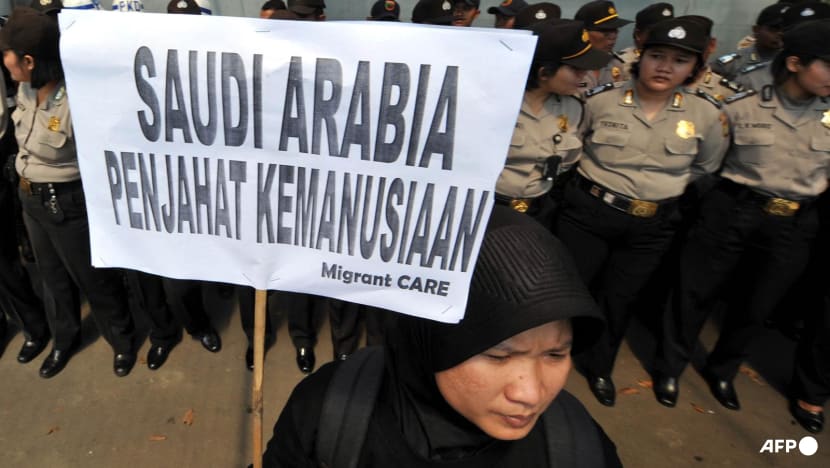
The moratorium forced Gulf states to look elsewhere to recruit helpers and caregivers and the Philippines was one of the countries which capitalised on the situation.
Saudi Arabia and the UAE have always been the top two destination countries for overseas Filipino workers. But their figure has gone up drastically over the last 20 years, according to annual studies by the Philippine Statistics Authority (PSA).
In 2004, the PSA estimated that there were around 282,000 Filipino workers in Saudi Arabia and 104,000 in the UAE. Last year, these figures rose to 432,000 and 293,000 respectively.
Meanwhile, Kuwait and Qatar have been among the top five destination countries for overseas Filipino workers over the last four years, overtaking Singapore and Japan. According to PSA data, last year there were 140,000 Filipinos working in Kuwait and 134,000 in Qatar while there were 97,000 in Japan and 84,000 in Singapore.
RAMPANT MISTREATMENT
The influx of Filipinos working in the Middle East was not without consequence.
Citing figures from the Philippine Overseas Labor Office, Philippine Daily Inquirer wrote that in 2020 of the nearly 5,000 cases of maltreatment of Filipino workers around the world, 4,300 came from the Gulf States.
The 2020 figure, presented during a senate hearing, was the only time such data was made public. However, numerous media reports of distressed Filipinos in the Middle East indicate that the wave of maltreatment has continued over the years.
Madam Joy Rama, 31 said she was constantly scolded by her employer for little to no reason during her time as a domestic worker in Jeddah between October 2023 and June of 2024.
“They accused me of not doing my job. When I tried to explain myself, I got scolded for talking back to them. My madam would even throw things at me. Once she twisted my arm,” the Filipina woman told CNA.
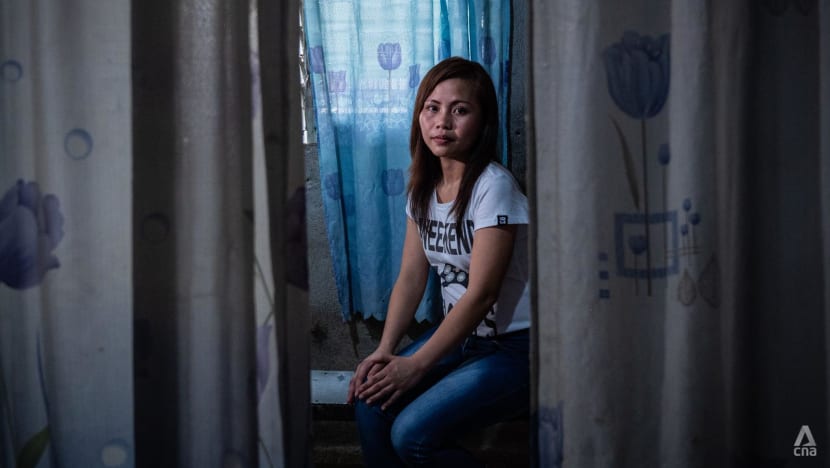
For months, Mdm Rama repeatedly begged her employer to let her return home.
“When she finally decided to let me go, the whole family surrounded me and made me sign a piece of paper written in Arabic. I was so scared for my life and so desperate to go home, I signed it,” she said.
“I am still owed two and half months worth of salary. Perhaps, that was what the document was all about.”
Mr Angelo Jimenez, the president of the University of the Philippines and a government advisor on migrant worker affairs, said the Philippines is doing all it can to put an end to the wave of abuse.
“At the core of every case is power imbalance,” Mr Jimenez told CNA. “We are thinking: How can we empower the powerless?”
Among the measures taken by the Philippines was a moratorium on the sending of new domestic workers to Kuwait in 2018 and Saudi Arabia between 2021 and 2022.
These bans were lifted after the two Arab countries agreed to provide more protection to Filipino workers such as the ability for helpers to terminate their contracts if they are abused or not paid.
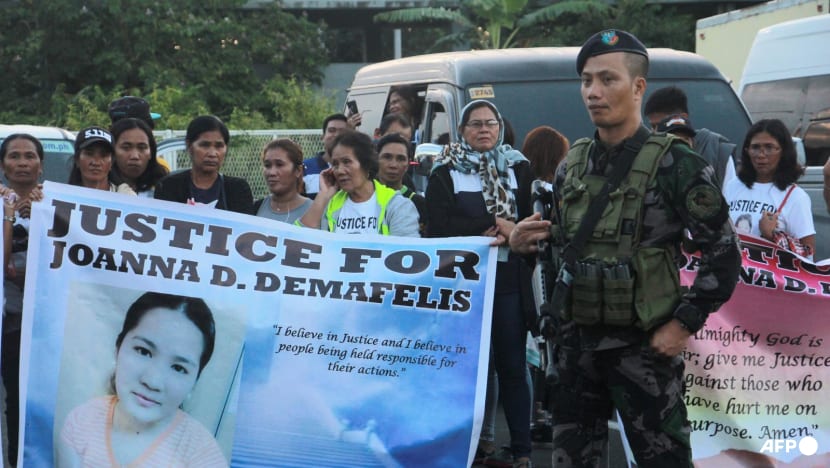
Responding to allegations of abuse towards domestic workers, a UAE spokesperson told the Guardian in 2023: “The UAE maintains a zero-tolerance policy towards workplace abuse.”
He added that the country has also organised workshops aimed at domestic workers so they understand their rights and how to report abuse.
A Qatari government spokesperson told the same newspaper in April that there have been a number of legal reforms in the past decade, including allowing migrant workers to change jobs without their employers’ consent and setting a higher monthly minimum wage of QAR 1000 (US$275) in 2020, up from QAR 906.
When Indonesia partially lifted its moratorium last year after improvements in domestic worker’s rights in a number of Gulf States, among the positive steps praised by activists was Saudi Arabia’s decision in 2022 to allow domestic workers to switch employers if they are abused or have their wages withheld.
The following year, the kingdom passed a law which mandates employers to give at least eight hours of uninterrupted rest daily and a weekly day off which lasts no less than 24 hours. The new law took effect on Sep 21, 2024.
Meanwhile, the UAE promised to include all domestic workers in the country’s compulsory health insurance scheme starting next year.
Despite these improvements, Indonesia is still cautious about fully lifting its ban and allowing private agencies to deploy domestic workers to the Middle East on their own. Currently, all Indonesian helpers have to be deployed through government-controlled arrangements.
“There is a pilot project between Indonesia and Saudi (Arabia) where the kafala sponsor is not an individual but a legal entity. We have evaluated (the project) and generally the protection system is much better,” Mr Judha of the Indonesian foreign ministry said.
He declined to say when or if Indonesia will fully lift the ban.
Mr Wahyu Susilo, executive director of Jakarta-based advocacy group Migrant Care said Indonesia should not be hasty about ending the moratorium.
“The new laws (adopted by Middle Eastern countries) are steps in the right direction but we have yet to see how these laws will be enforced,” he told CNA.
SHIFT TO EAST ASIA
Around the same time as Indonesia’s moratorium on sending migrant workers to the Middle East, Taiwan started recruiting more foreign workers to care for its burgeoning elderly population.
According to Taiwan’s National Development Council the number of citizens aged 65 and over has doubled to 4.2 million in the last 22 years. Taiwan, which has a population of more than 23 million, is expected to become a “super-aged society” by 2025.
In 2015, Taiwan relaxed the eligibility of residents looking to hire live-in foreign caregivers to any person more than 80 years of age. Before, a doctor’s certificate was needed before a household could hire a live-in caregiver.
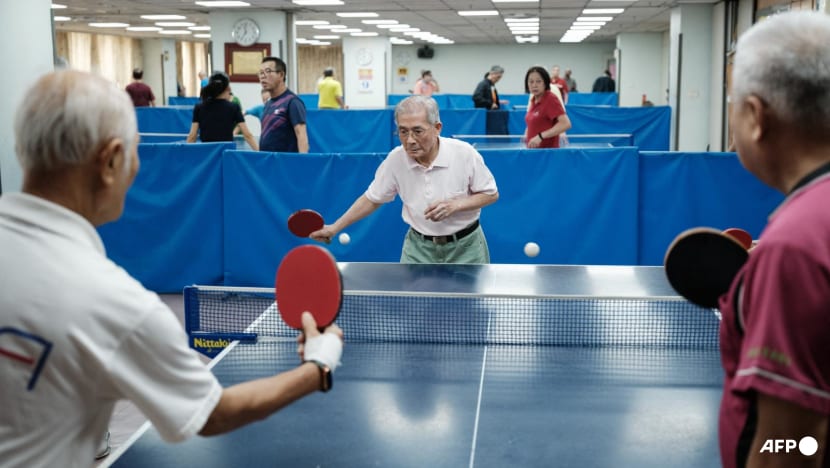
Last year, the eligibility was further expanded to those with conditions such as dementia and mental or physical disabilities.
Indonesia, one of Taiwan’s largest trading partners, was able to capitalise on these relaxations. Today, 65 per cent of around 250,000 social welfare workers, which include domestic workers and caregivers, in Taiwan are Indonesians.
But experts said that domestic workers and caregivers in Taiwan are prone to exploitation in the form of long working hours, heavy workload as well as violence and harassment since they are not protected under Taiwan’s labour laws due to the informal nature of their work.
The only thing protecting helpers and caregivers are the terms stipulated in their respective employment contracts which can vary significantly between one contract to the next.
“I am only entitled to one rest day per month while most of my friends got one rest day every week,” Indonesian helper Madam Suparni told CNA of her fellow domestic workers in Taiwan who managed to cut a better deal with their employers.
The 40-year-old, who goes by one name, said after four months of working in Taiwan, the lack of rest days is starting to affect her physical and mental health.
Then there’s the issue of her living arrangement. Because space is at a premium in her city, Taipei, Mdm Suparni is forced to sleep on an inflatable mattress inside a cockroach-infested storage room. The only other space where she can have her privacy is the apartment’s balcony which is primarily used for drying clothes.
Taiwan is currently deliberating a “Domestic Workers Protection Act,” which would entitle domestic workers to at least one day off per week. The act also includes provisions on wage standards, rest time, leaves and insurance.
According to local media, the bill, which was first drafted in 2011, has been going back and forth between branches of the government due to concerns on how to implement it.
But still, helpers and caregivers are impervious to unfair treatments and abuse in these emerging host countries due to the informal and isolated nature of their work.
“Even the strictest of labour laws cannot control what goes on in the privacy of an employers’ home,” Mdm Anis of the Indonesian Commission on Human Rights said.
The Philippines is also seeing more of its citizens working in East Asia.
In August, South Korea welcomed 100 Filipino workers as part of its pilot programme to allow for the first time, foreign workers to work for Korean families as domestic helpers and caregivers.

If the six-month pilot is deemed successful, the Seoul Metropolitan Government plans to bring in 500 Filipino caregivers next year, and up to 1,000 by 2028.
The workers will be paid the country’s minimum wage of 9,860 won (US$7) an hour. For 40 hours of work per week, that adds up to about US$1,800 a month including mandatory insurance coverage.
The Korea Times reported that the Filipino workers will work part-time at multiple households, citing a survey conducted by the Ministry of Employment and Labour which shows that there is more demand for part-time helpers who are able to work for about four hours a day and three to four days a week, rather than those who live with their employers.
The ministry, the newspaper wrote, is offering a dormitory for these workers in cooperation with the Seoul Metropolitan Government.
Like Taiwan, South Korea is expected to become a “super-aged society” next year with 20 per cent of the 51 million population are aged 65 or older.
The country is also facing a declining birthrate which last year stood at 0.72 births per woman. The programme aims to encourage more women to have children by easing the burden of childcare responsibilities through the hiring of foreign helpers.
But the initiative has faced resistance from activists and politicians who see the presence of foreign caregivers as competition to South Korea’s own domestic worker labour force, which is estimated to be 107,000 according to Statistics Korea.
Japan is also mulling allowing foreigners to become in-home caregivers to alleviate an acute labour shortage in the field.
Currently, foreigners can only work in nursing homes and are barred from providing home care, due to concerns about their Japanese communication skills and understanding of its culture and tradition.
Mr Marvin Rimas, secretary general of advocacy group Migrante Philippines said the rising demand for domestic workers and caregivers in East Asia could be the start of a trend for Filipino workers to also shift away from the Middle East in favour of working in East Asia.
“The only reason why the Middle East is very popular among overseas Filipino workers is because getting a job there is easy. There are fewer requirements in terms of education, certification or experience. But abuse is rampant there,” he told CNA.
The Philippines, he said, is trying to improve the skills of its workforce to meet the qualifications needed by countries like Taiwan and South Korea.
“Demand for foreign workers in these countries will likely keep growing. And interests among Filipinos to work in these countries is very high,” he said.






















